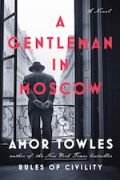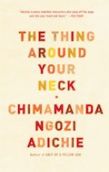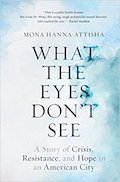What I'm Reading: October 2018
October 21, 2018 at 7:56 AM
Here are the books I’ve read and especially admired in recent months, April 2018 - September 2018.
- The Orphan Master’s Son by Adam Johnson, fiction
- Educated by Tara Westover, memoir
- A Gentleman in Moscow by Amor Towles, fiction
- The Quickwrite Handbook: 100 Mentor Texts to Jumpstart Your Students’ Thinking and Writing by Linda Rief, professional
- From Striving to Thriving: How to Grow Confident, Capable Readers by Stephanie Harvey and Annie Ward, professional
- Bad Blood: Secrets and Lies in a Silicon Valley Startup by John Carreyrou, nonfiction, journalist’s report
- The Presidents Club: Inside the World’s Most Exclusive Fraternity by Nancy Gibbs and Michael Duffy. history, nonfiction
- On Chesil Beach by Ian McEwan, novella
- I Am Not Your Perfect Mexican Daughter by Erika L. Sanchez, YA fiction
- Killers of the Flower Moon: The Osage Murders and the Birth of the FBI by David Grann
- #NeverAgain: A New Generation Draws the Line by David Hogg and Lauren Hogg, nonfiction account: Parkland, FL school shooting
- Essays After Eighty by Donald Hall, essays
- What the Eyes Don’t See: A Story of Crisis, Resistance, and Hope in an American City by Mona Hanna-Attisha, environmental justice, nonfiction story
- What Truth Sounds Like: RFK, James Baldwin and Our Unfinished Conversation About Race in America, nonfiction, call to action
- Far From the Tree by Robin Benway, YA fiction
- Less by Andres Sean Greer, Pulitzer Prize winner for fiction
- 180 Days: Two Teachers and the Quest to Engage and Empower Adolescents by Kelly Gallagher and Penny Kittle, professional
- Hunger by Roxane Gay, memoir
- Call Them by Their True Names: American Crises (And Essays) by Rebecca Solnit
- The Thing Around Your Neck by Chimamanda Ngozi Adichie, short stories
- Reimagining Writing Assessment: From Scales to Stories by Maja Wilson, professional
- Harbor Me by Jacqueline Woodson, middle school fiction

While I found all of the fiction on the list excellent, A Gentleman in Moscow by Amor Towles has remained with me months after I finished it. In fact the main character, Count Alexander Rostov, became such a comforting friend that I chose to linger with him in my mind long after I completed the book, so much so that I deliberately didn’t start another book for several weeks. This is the power of fiction. I am still visualizing and savoring the characters, the setting, the escapades, and much more—to continual delight. It’s a long book and a slow read, but that’s a good thing.
There are life lessons here. The Count shares not just his adventures during a challenging era in Russia’s history but also, and perhaps most importantly, words of wisdom for living a rich life in spite of adverse circumstances. For much more, see the New York Times Book Review.
 I’d also like to call out The Thing Around Your Neck, a book of short stories by Nigerian author Chimamanda Ngozi Adichie. Adichie is an accomplished and award-winning storyteller; I enjoyed reading a short story a day, usually at bedtime, and appreciated reading about people’s lives through the lens of another culture. See this book review, which also includes information about the author.
I’d also like to call out The Thing Around Your Neck, a book of short stories by Nigerian author Chimamanda Ngozi Adichie. Adichie is an accomplished and award-winning storyteller; I enjoyed reading a short story a day, usually at bedtime, and appreciated reading about people’s lives through the lens of another culture. See this book review, which also includes information about the author.
Even if you don’t read the book, be sure to view Adiche’s thought-provoking TED Talk on the importance of hearing everyone’s authentic cultural story, which is so crucial for us as educators working with students from diverse backgrounds. You can view and listen to her TED Talk, The Danger of a Single Story, at https://www.ted.com/talks/chimamanda_adichie_the_danger_of_a_single_story.
For nonfiction, I was captivated by What The Eyes Don’t See: A Story of Crisis, Resistance, and Hope in an American City by Mona Hanna-Attisha, a pediatrician turned activist. Through her persistence, courage, outrage, and force of will, she brought the disgraceful Flint, Michigan water crisis into the national domain so it could no longer be publicly ignored. Hanna-Attisha is an inspiration as she shows what’s possible when one deeply caring citizen moves from outrage to public action to begin to right the injustice and cruelty fostered on a whole city egregiously poisoned by dangerously high levels of lead in the water.

The title of the book, What the Eyes Don’t See comes from a quote the author attributes to D. H. Lawrence: The eyes don’t see what the mind doesn’t know. That quote continues to resonate with me in all aspects of my life. As an educator, the implications are profound; what we see, notice, and can wisely act upon with our students is dependent on the quality and depth of our knowledge, life experiences, and beliefs.
Commentary: The right to reread a favorite book
I love rereading old favorites and often enjoy the second or third reading as much or more than the first one. It’s as if now that you know the story, you can savor the language, moments, and characters even more than the first time. It’s like spending time with a treasured friend. I have read On Chesil Beach three times now and have often given it as a gift to lovers of fiction. It’s a gem of a book, a novella, and it’s my favorite of Ian McEwan’s many brilliant offerings. It’s a perfect story, beautifully written and unforgettable. The story takes place in one evening, a wedding night, where what is said and unsaid between the bride and groom contribute to a lifetime of regret, longing and thoughts of what might have been. Each time I read the book, always in one sitting, it takes my breath away.
I also reread professional books to dig deeper into a subject I am seeking to know more about. Most recently, I reread Reimagining Writing Assessment: From Scales to Stories by Maja Wilson (Heinemann, 2018) in preparation for my continuing work in Winnipeg, Manitoba to improve and sustain the teaching of writing. I love the way the author re-conceptualizes writing assessment as assessment for growth. She convincingly argues that student intention, interest, and decision-making must be at the forefront of assessment and that a trait scale can never accurately capture those important attributes.
It’s important that we also value rereading books as a worthwhile and even necessary goal for our students as readers, from our emerging readers to our most sophisticated ones. For young readers, it is the rereading of favorite books that often is the catalyst for them becoming readers. Once they can read a book fluently without stopping to figure out words, they are free to give over their efforts to understanding the text. And for avid readers, rereading is a necessary pleasure. Every time I go to one of our local independent bookstores, I find myself lingering at the sale tables. I am always delighted to find and buy a beloved book from my past and add it to my bookshelves for future reading. Do think about how to deliberately embed rereading for pleasure into our school and classroom reading culture.